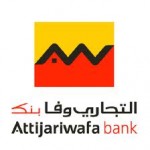MENAFN Press
 Capital Intelligence (CI), the international credit rating agency, today announced that it has affirmed the ratings of Attijariwafa Bank (AWB), based in Casablanca, Morocco. The Long-Term Foreign Currency Rating is affirmed at ‘BBB-‘ and the Short-Term Foreign Currency Rating at ‘A3’, with a ‘Stable’ Outlook. The ratings are capped at the Sovereign level for Morocco. At the same time, CI affirmed Attijariwafa Bank’s Financial Strength Rating (FSR) at ‘BBB’, supported by AWB’s sound overall financial profile – including very good loan asset quality and solid profitability. The Outlook is ‘Stable’. The Support Rating of ‘2’ was also maintained, reflecting the strong ownership profile, together with the Bank’s dominant banking franchise and the very high likelihood of support from the authorities in case of need.AWB, the leading bank in Morocco, controls a strong domestic banking franchise with a market share of around one-quarter of sector assets, loans and deposits. AWB’s financial performance has been solid for some years. The Bank’s asset quality is good, with a low level of non-performing loans (NPLs) and high provision coverage. Going forward, there may be some pressure on loan asset quality as the Moroccan economy experiences weaker economic growth in 2012. However, any increase is not expected to be significant for AWB and importantly the Bank’s coverage of NPLs is currently very good. AWB’s capital adequacy ratio is reasonable, with increases over the last couple of years due to the issue of subordinated Tier 2 capital. However, the current level of capital does not provide room for significant asset growth. Liquidity has tightened somewhat over the last couple of years as loan growth has outpaced deposit growth. However, the position is currently adequate and is supported by a solid level of liquid assets, which includes mainly Moroccan government treasury bills. AWB’s profitability has been consistently solid for some years and the performance in 2011 was steady. Margins widened slightly through a lower cost of funds and higher interest earned from lending. The Bank’s performance at the operating level remains very good and AWB has significant capacity to absorb any potential increased provisioning requirement.AWB was established in 1911 as Banque Commerciale du Maroc (BCM) and is Morocco’s oldest and largest domestic bank. In 2003, BCM acquired control and effective ownership of Wafabank (WB), which was Morocco’s fourth-largest bank. A merger between the two banks and a change of name to Attijariwafa Bank became effective retroactive to 1 September 2004. The principal owners of AWB include the large National Investment Company (SNI) group (48.7%), domestic institutions (29.6%), and Grupo Santander (5.6%). Of the remainder, about 15.1% is public float.AWB is the flagship bank of the Attijariwafa Bank Group, which has extensive banking operations across Africa. The Group aims to develop community-based banking across North and sub-Saharan Africa. The Group has noted banking franchises in Tunisia (Attijari Bank Tunisia) and Senegal, and more recently in the Congo, Ivory Coast, Gabon, Mauritius and Cameroon. Attijariwafa Bank Morocco contributes around 65% to overall Group profit. The consolidated balance sheet amounted to MAD343,452mn (USD40.1 billion) at end 2011 with net profit of MAD5,302mn (USD619mn). AWB’s balance sheet stood at MAD258,328mn (USD29.6bn) at end 2011.####The ratings have been initiated by Capital Intelligence. However, the issuer participated in the rating process. The information sources used to prepare the credit ratings are the rated entity and public information. Capital Intelligence had access to the accounts and other relevant internal documents for the purpose of the rating and considers the quality of information available on the issuer to be satisfactory for the purposes of assigning and maintaining credit ratings. Capital Intelligence does not audit or independently verify information received during the rating process.The rating has been disclosed to the rated entity and released with no amendment following that disclosure. Ratings on the issuer were first released in March 1996. The ratings were last updated in May 2011.The principal methodology used in determining the ratings is Bank Rating Methodology. The methodology and the meaning of each rating category and definition of default, as well as information on the attributes and limitations of CI’s ratings, can be found at www.ciratings.com.
Capital Intelligence (CI), the international credit rating agency, today announced that it has affirmed the ratings of Attijariwafa Bank (AWB), based in Casablanca, Morocco. The Long-Term Foreign Currency Rating is affirmed at ‘BBB-‘ and the Short-Term Foreign Currency Rating at ‘A3’, with a ‘Stable’ Outlook. The ratings are capped at the Sovereign level for Morocco. At the same time, CI affirmed Attijariwafa Bank’s Financial Strength Rating (FSR) at ‘BBB’, supported by AWB’s sound overall financial profile – including very good loan asset quality and solid profitability. The Outlook is ‘Stable’. The Support Rating of ‘2’ was also maintained, reflecting the strong ownership profile, together with the Bank’s dominant banking franchise and the very high likelihood of support from the authorities in case of need.AWB, the leading bank in Morocco, controls a strong domestic banking franchise with a market share of around one-quarter of sector assets, loans and deposits. AWB’s financial performance has been solid for some years. The Bank’s asset quality is good, with a low level of non-performing loans (NPLs) and high provision coverage. Going forward, there may be some pressure on loan asset quality as the Moroccan economy experiences weaker economic growth in 2012. However, any increase is not expected to be significant for AWB and importantly the Bank’s coverage of NPLs is currently very good. AWB’s capital adequacy ratio is reasonable, with increases over the last couple of years due to the issue of subordinated Tier 2 capital. However, the current level of capital does not provide room for significant asset growth. Liquidity has tightened somewhat over the last couple of years as loan growth has outpaced deposit growth. However, the position is currently adequate and is supported by a solid level of liquid assets, which includes mainly Moroccan government treasury bills. AWB’s profitability has been consistently solid for some years and the performance in 2011 was steady. Margins widened slightly through a lower cost of funds and higher interest earned from lending. The Bank’s performance at the operating level remains very good and AWB has significant capacity to absorb any potential increased provisioning requirement.AWB was established in 1911 as Banque Commerciale du Maroc (BCM) and is Morocco’s oldest and largest domestic bank. In 2003, BCM acquired control and effective ownership of Wafabank (WB), which was Morocco’s fourth-largest bank. A merger between the two banks and a change of name to Attijariwafa Bank became effective retroactive to 1 September 2004. The principal owners of AWB include the large National Investment Company (SNI) group (48.7%), domestic institutions (29.6%), and Grupo Santander (5.6%). Of the remainder, about 15.1% is public float.AWB is the flagship bank of the Attijariwafa Bank Group, which has extensive banking operations across Africa. The Group aims to develop community-based banking across North and sub-Saharan Africa. The Group has noted banking franchises in Tunisia (Attijari Bank Tunisia) and Senegal, and more recently in the Congo, Ivory Coast, Gabon, Mauritius and Cameroon. Attijariwafa Bank Morocco contributes around 65% to overall Group profit. The consolidated balance sheet amounted to MAD343,452mn (USD40.1 billion) at end 2011 with net profit of MAD5,302mn (USD619mn). AWB’s balance sheet stood at MAD258,328mn (USD29.6bn) at end 2011.####The ratings have been initiated by Capital Intelligence. However, the issuer participated in the rating process. The information sources used to prepare the credit ratings are the rated entity and public information. Capital Intelligence had access to the accounts and other relevant internal documents for the purpose of the rating and considers the quality of information available on the issuer to be satisfactory for the purposes of assigning and maintaining credit ratings. Capital Intelligence does not audit or independently verify information received during the rating process.The rating has been disclosed to the rated entity and released with no amendment following that disclosure. Ratings on the issuer were first released in March 1996. The ratings were last updated in May 2011.The principal methodology used in determining the ratings is Bank Rating Methodology. The methodology and the meaning of each rating category and definition of default, as well as information on the attributes and limitations of CI’s ratings, can be found at www.ciratings.com.
About Capital Intelligence (Cyprus) Ltd.
Capital Intelligence (CI) has been providing credit analysis and ratings since 1985, and now rates over 400 Banks, Corporates and Financial Instruments (Bonds & Sukuk) in 39 countries. A specialist in emerging markets, CI’s geographical coverage includes the Middle East, the wider Mediterranean region, Central and Eastern Europe, South Asia, South-East Asia, the Far East, and North and South Africa. www.ciratings.com
.







